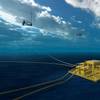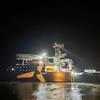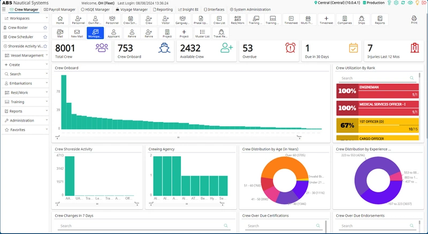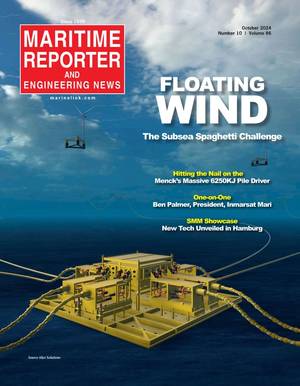Fugro's GeoWing Trial Successful
Fugro has undertaken successful trials of its new GeoWing, a system designed to detect low ferrous content unexploded ordnance (UXO) items in challenging marine environments.
The new GeoWing system is especially beneficial for subsea construction projects, such as wind farms and cable route developments, particularly in magnetically ‘noisy’ marine environments and areas affected by strong tidal currents.
The magnetic signature from small items of UXO can often be masked by the magnetic signature of other sources, such as the background geology. Fugro’s solution is the GeoWing, a fixed gradiometer array consisting of five magnetometers mounted behind an ROTV. The GeoWing detects variations in both vertical and transverse magnetic gradient, which enables the ferrous signature from background geology and motion noise to be almost entirely removed from the analysis.
The use of this new system reduces the number of false positive readings and therefore reduces the number of potential UXO targets that need to be investigated. This will dramatically reduce costs for clients and allow more opportunity to re-position subsequent seabed operations away from any potential items of UXO.
Dr Anne Chabert, Chief Geophysicist at Fugro EMU, was keen to emphasise the benefits of the system and the ease with which it can be deployed. “The GeoWing can be operated at a speed of up to 6 knots and has been designed to offer a cost effective solution for the detection of relatively small UXO,” she explained during her recent presentation at the Hydrographic Society UK’s UXO conference in Southampton, UK.
Fugro is currently deploying the new GeoWing system on projects in Europe, the Baltic and southern North Sea, with high demand anticipated amongst clients planning cable routes, pipelines and offshore renewable projects.












